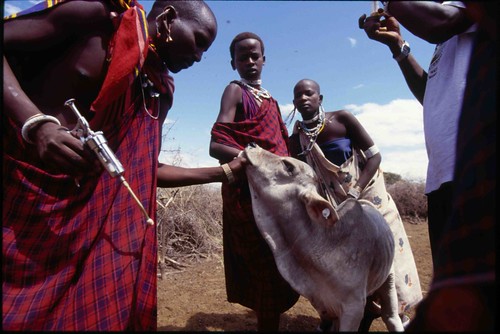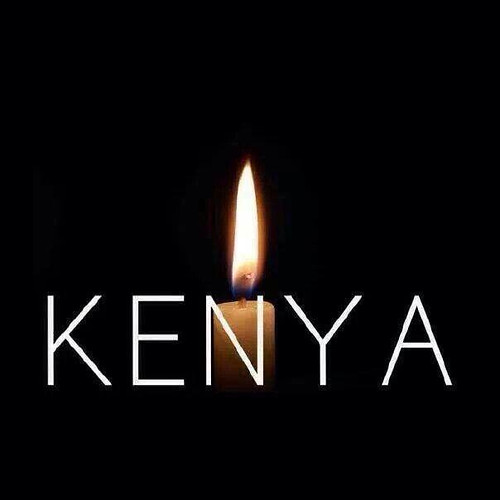Tanzanian Maasai help vaccinate their calves against lethal East Coast fever (photo credit: ILRI/Stevie Mann).
CGIAR has doubled its funding in the last five years, from $500 million (in 2008) to $1 billion (in 2013).
Officials say harvesting the fruits of this historic commitment could, among other benefits, lift 150 million people in Asia out of poverty by boosting rice production, provide 12 million African households with sustainable irrigation, save 1.7 million hectares of forest from destruction, give 50 million poor people access to highly nutritious food crops, and save up to 1 million cattle from dying untimely deaths each year due to a lethal disease.
The International Livestock Research Institute (ILRI) is one of 15 global research centres belonging to CGIAR, which works with hundreds of partners to develop innovative solutions, tools, and technologies for the benefit of the world’s poorest people. It seeks to bring cutting edge science to bear on a wide range of issues facing millions of farmers and other poor smallholders in developing countries who collectively generate nearly 70 percent of the world’s food production.
‘The $1 billion in funding will help finance CGIAR’s 16 global research programs and accelerate the development of scientific, policy and technological advances needed to overcome complex challenges—such as climate change, water scarcity, land degradation, and chronic malnutrition, greatly improving the well-being of millions of poor families across the developing world’, said Frank Rijsberman, CEO of the CGIAR Consortium.
For more than 40 years, CGIAR and its partners have transformed the lives of hundreds of millions of people with the tangible outcomes of agriculture research, including improved crop varieties, sustainable farming methods, new fish strains, novel livestock vaccines, climate-smart solutions, and incisive policy analysis.
For example:
In eastern Africa, a ‘live’ vaccine against the deadly cattle disease East Coast fever developed by ILRI with the Kenya Agricultural Research Institute and other partners and now being distributed by GALVmed, has saved 620,000 calves, benefiting up to 50,000 poor households that rely on cattle for food and income. The vaccine could benefit 20 million more people in the region, with annual benefits of $270 million.
- Drought tolerant maize has increased farmers’ yields by 20-30%, benefiting 20 million people in 13 African countries.
- ‘Scuba rice’, which can survive under water for two weeks, is protecting the harvests, incomes, and food security of poor farmers and consumers across monsoon Asia.
- Newly developed potato varieties that withstand late blight disease and yielded eight times more than native varieties in the region have made the difference between having enough to eat or not in the Paucartambo province of Peru, where late blight threatened to devastate staple food supplies.
- By integrating food crops with trees that draw nitrogen from the air and transfer it to the soil, an innovative agroforestry practice captures carbon and reduces greenhouse gas emissions, while improving soil fertility, rainwater use efficiency, and yields by up to 400% for maize in the Sahel region.
- Across Afghanistan, Bangladesh, Ethiopia, Egypt, Nepal, and Pakistan, high-yielding wheat varieties resistant to Ug99, a highly virulent disease, have protected the livelihoods and food security of 500,000 farming families.
Read the CGIAR press release: CGIAR doubles funding to $1 billion in five years, 17 Dec 2013.


